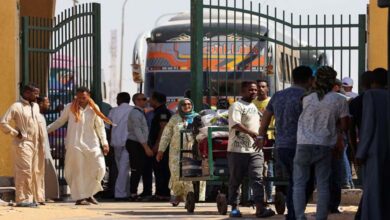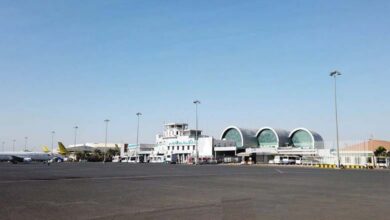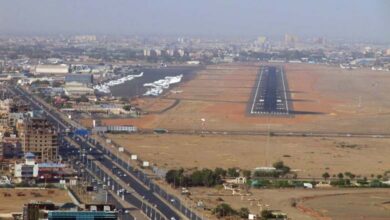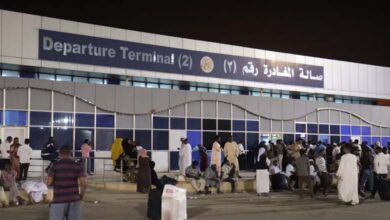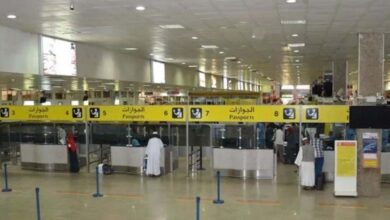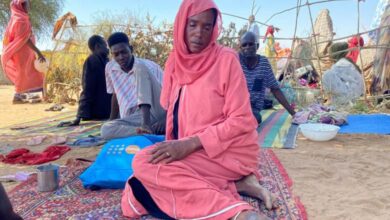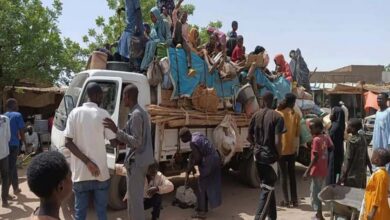Pressure on Brotherhood continues in parliament – German expert

Pressure is mounting on the German Brotherhood at a time when the partisan blocs in the parliament are continuing to besiege the organization and its derivatives by working to dry up its sources of funding.
These were confirmed by Rebecca Schönenbach, a leading German expert and author, who noted that political parties continue to pressure political Islamist organizations in the Bundestag.
She participated in a recent hearing of the German Parliament’s Internal Affairs Committee on combating and stopping the financing of political Islam.
Schönenbach, a columnist for the German newspaper “Die Welt”, attended the hearing as a leading expert among nine experts in political Islam in Europe who were invited to the session to brief members of parliament on a draft resolution submitted by the Christian Union (opposition) to combat the financing of the extremist movement.
Combating extremism
Asked about the possibility of continuing intensive parliamentary activities against political Islam and the Brotherhood in the coming months, Schönenbach said, “Maybe yes, though it would be fatal if democratic parties left such issues to the (populist) Alternative for Germany.”
It is better to look for solutions to remove the foundations of demagogues and combat all forms of extremism.
“Some actors and organizations in Germany and across Europe are directly linked to the Brotherhood, and some were formed by the Brotherhood,” she added.
The “main danger”, according to the German expert, “lies in the fact that there is a miscalculation of the destructive power of the Brotherhood’s environment in Europe, where organizations (affiliated with them) often appear as a reasonable alternative to radical groups.”
“In order to have contacts (with the Muslim community), decision makers then turn to representatives of the Brotherhood,” she said, adding that “however, the Brotherhood’s goal remains the abolition of democracy and the rule of law.”
The German expert warned that “increased cooperation” between public institutions and Brotherhood organizations, and “sometimes state funding (of organizations) through subsidies, is a dangerous development.”
Confusing step
Despite this danger and the pressure on political Islam and the Brotherhood in parliament, the federal Ministry of Interior took a confusing step, when it suspended the work of the Political Islam Experts Group in the ministry after the official end of its mandate.
Some saw the decision as a step backwards, while others saw it as a prelude to a new initiative by the current government.
“Given that extremism of any kind does not go away on its own just because it is no longer considered, I think the decision (of the government) is shortsighted,” Schönenbach replied.
Political Islam also overlaps with right-wing extremism, especially in non-violent circles, and there is cooperation between actors, as noted in criticizing the coronavirus pandemic measures, among other things.
The German expert also pointed out that “therefore it will be urgent to take into account every trend of extremism and to use the results of different expert groups as well as expert groups against Muslim hostility to develop a common comprehensive concept against extremism.”
Asked about the possibility of the current government proposing an alternative to the Political Islam Experts Committee, Schönenbach said she hoped “there will be an alternative, otherwise there is a risk that there will be no discrimination between faith and Islamism.”
“Only when political Islam is clearly named and publicly described as a form of extremism will it be made clear that faith and extremism are not one thing,” she said.
“If Islamism is no longer recognized as such, every phenomenon of extremism that occurs will be linked to Islam, because there is no longer any separation,” she said, calling on the federal government to “avoid it at all costs.”
“Non-violent extremism requires more funding than any terrorist attack to be effective,” she said.
“Within the framework of extremist organizations, it is necessary to finance propaganda, campaigns, the work of young people, institutions, associations, events with celebrities, decision-makers, trips, conferences, books, etc.,” she said.
Tracking financial flows is “essential, and effective regulation can force every nonprofit organization to disclose its financial resources at a certain level,” Schönenbach said.
“For example, in France there are criteria such as that a contribution of more than 10,000 euros must be published from one source per year, or contributions totaling 253,000 euros or more per year,” she said.
Further measures
The eminent German expert called for “more measures to be involved, for example the actual evaluation of preventive and de-radicalization measures, evidence-based research, research on different Islamism trends and many other measures.”
But in the end, all of this will not be useful unless a comprehensive concept for combating extremism is established. Such a concept is still lacking today.
Regarding the German authorities’ handling of the issue of the financing of political Islam, she said, “So far, the authorities have been basically able to monitor and prosecute when there is a concrete suspicion of a danger, and there are a number of means, such as checking current accounts.”
“However, legitimate Islamist organizations (a term used to refer to political Islamist organizations) are characterized by their legal work (from abroad), but in the dark, there is the issue of the source of funds and international relations [for these organizations],” she said, noting that Islamist organizations cover their transactions with a legal cover but conceal much from the source of funds and their international relations.
“Authorities are often powerless, even if transactions such as the Eurotrust purchase are known,” she said. “As has been said, this will help force the dark side [of the regulations] to come to the surface.”
Months ago, the issue of the acquisition of real estate by the European Trust, the Muslim Brotherhood’s investment fund, in the Viding district of Berlin, for 4 million euros, broke out, and Brotherhood organizations moved from the property afterwards, without the security services having the means to investigate the matter.


